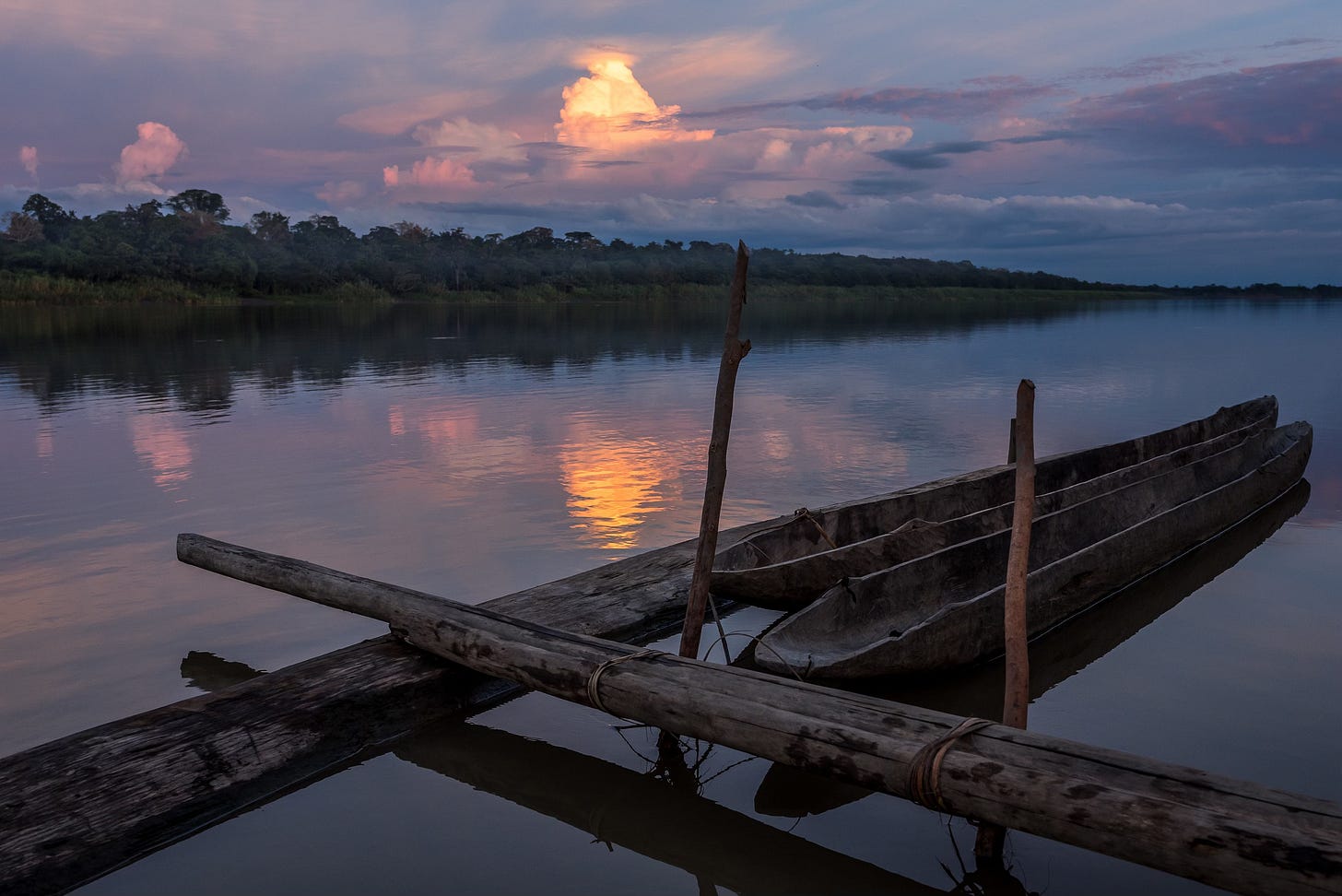I want to tell you two stories. Both are true.
The first is how I experienced our first year in Papua New Guinea at the time. The second is what I’ve come to understand only later—after time, distance, and clarity.
Story One: How I Saw It Then
We had waited six years for this moment. Six years of training, raising support, and preparing our hearts. So when we finally arrived in Papua New Guinea, it felt like a dream come true.
The air was thick and warm. The jungle was vibrant and alive. I remember waking up to the birds singing. It was unlike anything I’d ever heard. Every part of me felt like we had finally made it.
We were eager to learn the trade language and eventually go to an unreached tribe. That was the goal. We’d heard some difficult things about leadership, but everyone we met seemed kind—especially the regional chairman, who actually seemed to like us. That alone felt like a little miracle.
We picked up the language quickly. We made friends in the village and connected with other missionaries. We were asked to serve in support roles for a while. It wasn’t what we had dreamed of, but we trusted God and committed ourselves to the work.
Bush orientation was next—and I loved it. The slower pace, the simplicity, the sense of purpose. That year became about adjusting—learning how to shop, cook, and parent in a completely different world. It was about falling in love with the people and the culture.
Of course, we still hoped to get into a tribe soon. But we told ourselves God’s timing was best.
And that story is true.
Story Two: What I See Now
It still feels strange to write this part.
A lot of it I saw but didn’t understand. Some of it I didn’t want to understand. And some of it was carefully hidden.
When we arrived, we moved into a house recently vacated by another missionary. The local people spoke about him like a legend. So did other missionaries. They told stories of how he drank and smoked with the villagers—what I didn’t know then was that he was also sleeping with women in the village. At least one became pregnant.
What I understand now is that this wasn’t just about “bad behavior.” It wasn’t just moral failure. This was abuse.
Because can it really be consensual—when a married missionary, backed by a powerful Western religious institution, engages in sexual relationships with local village women? The power imbalance is massive. He held wealth, status, education, connections to the outside world. They had none of that. In that culture their families would have encouraged these young women to be with the missionary because they would want him to be indebted to them.
There was no such thing as equal footing.
And yet, instead of being held accountable, he was quietly removed and then promoted—made dean of men at the mission’s Bible school. The leadership drove into town and paid off the local family whose daughter had gotten pregnant by this missionary. Paid them to stay quiet. Again this was not an affair, due to the power imbalance. This was rape.
At the time, I was just trying to stay in good standing. There was so much pressure to appear perfect.
We watched missionaries get sent home for confusing reasons—because they weren’t spanking their kids enough, because they needed antidepressants, because they wanted the tribal church to make its own decisions.
It became clear: leadership wasn’t just guiding—it was controlling.
We learned quickly that we were not allowed to question. That we were not allowed to do anything that they did not give permission for.
During bush orientation, we lived with a missionary family. The man had serious anger issues. He screamed. Punched walls. Belittled his wife and children. Then he’d hike down to the village to teach about “godly family life.” I helped clean out a bush house during that time. It was kind of hush hush as to why this family had left. I recently learned that the missionary woman allegedly had an affair with an underage boy. But it wasn't an affair at all. It was child sexual abuse. They need to call things by their actual names.
I didn’t know how to hold any of it.
Every time we got on a mission plane, our bodies and bags were weighed by a man the leadership knew had sexually abused children.
They let him stay—for years.
And when it could no longer be hidden, they told people he was leaving for “health reasons.” When the truth started to spread, they downplayed it as just “a spanking incident.”
It wasn’t.
He had sexually abused multiple children—and they knew.
I didn’t see it all at once. It’s taken time. Distance. And the courage of others who were brave enough to speak up.
Why I’m Telling This Now
If you were on the mission field and you think, “I never saw anything like that,”—you might be telling the first version of the story.
And that version might be true, as far as it goes.
But I urge you: start asking questions. Start listening.
The truth doesn’t always shout.
Sometimes it’s buried under silence, guilt, and institutional protection. Sometimes it’s hidden in the things we told ourselves not to look at too closely.
If you feel unsettled—lean into that.
~unnamed





